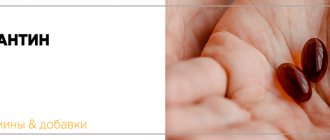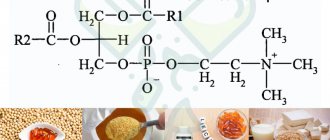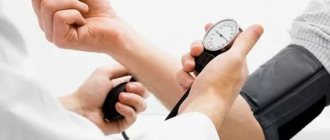In order for hair to always remain beautiful - thick, strong and shiny, it needs good nutrition, including a sufficient amount of important microelements, proteins and vitamins, which are directly involved in the formation of a healthy curl structure. B vitamins are especially beneficial for the health and beauty of hair, among which it is advisable to highlight thiamine (vitamin B1), since it plays an important role in many metabolic processes and provides the hair follicles with the necessary energy. Indeed, with a severe deficiency of thiamine in the body, hair is the first to suffer: it becomes thinner, becomes brittle and begins to fall out rapidly.
To maintain the attractiveness of your hair, you need to take care of the supply of vitamin B1 both from the inside and outside. First of all, you need to adjust your diet to include foods containing thiamine, and additionally use this compound externally, adding it to care products - shampoos, conditioners and hair masks. As a rule, to treat curls, a synthetic analogue of vitamin B1 is used - “Thiamin chloride” in ampoules, which can also be found under the name “Thiamin Vial” or “Thiamin bromide”.
Benefits of vitamin B1 for hair
Thiamine is a water-soluble compound that takes part in the metabolism of fats, carbohydrates and proteins. Without this vitamin, not a single biochemical reaction occurring in cells, blood and tissues can occur. The main feature of thiamine is its ability to regulate metabolism and synthesize an energy substrate that is universal for all cells - ATP molecules. Thus, vitamin B1 has a fairly strong effect on hair follicles, providing them with energy for growth, strength and elasticity. In addition, thiamine helps to bind the cuticle scales (the outer layer of the hair shaft), making the curls soft to the touch, smooth and silky.
The use of vitamin B1 in masks and other hair cosmetics can eliminate the following problems:
- lack of shine;
- loss of elasticity;
- increased dryness, fragility;
- slow growth;
- split ends;
- intense hair loss;
- constant tangling of strands;
- dandruff, seborrhea.
Best Thiamine Supplements
The best vitamin B1 supplements are made by Solgar. It is one of the world leaders in the production of premium quality nutritional supplements. The brand has also gained a special reputation thanks to the use of advanced equipment and the most careful control of all stages of production.
Solgar produces two types of supplements with different dosages:
- Solgar Vitamin B1 (Thiamin) 500 mg is an extremely over-dosed supplement. Not suitable for course and prophylactic use. Prescribed only for medical reasons, such as serious intestinal diseases, intoxication and others;
- Solgar Vitamin B1 (Thiamin) 100 mg - good for quickly correcting a deficiency. Used in sports, to rejuvenate and improve the health of skin and hair, and to treat nervous disorders. Used in short courses of up to 6-8 weeks.
Recommendations for using thiamine for hair
Vitamin B1 for hair can be used both as part of multi-component masks and as an independent product. But in order for the use of thiamine to be as effective as possible, you need to take into account some nuances:
- When making vitamin masks, you should remember that thiamine cannot be used together with pyridoxine and cyanocobalamin (vitamins B6 and B12), since this combination significantly increases the risk of allergies.
- Masks with thiamine should be applied to dry, clean hair, since wet strands are more susceptible to damage and do not absorb beneficial substances well, especially if the mixture contains oils.
- Apply cosmetic mixtures first to the root zone of the hair, gently rubbing into the scalp with your fingertips. And only then you should carefully distribute the composition along the entire length of the strands using a comb or brush.
- Warming the head when using single-component masks does not play a big role. And in case of applying a complex composition, it is advisable to put on a plastic cap and wrap your head with a thick towel.
- The duration of action of masks with thiamine should be at least 30 minutes so that the metabolic processes in the cells have time to activate. In some cases (if specified in the recipe), masks can be left on all night.
- You can remove vitamin mixtures with ordinary water at a comfortable temperature. If necessary (if the mask contains oils), you need to use shampoo. But it is not recommended to use conditioners, balms and rinses, otherwise the beneficial effect of the vitamin may be minimized.
- The frequency of health procedures depends on the condition of the hair. As a rule, for preventive purposes, one session per week is enough, and in case of serious problems, it is advisable to use masks with thiamine 8-10 times a month. Between courses it is necessary to take a long break (at least 60 days).
When using vitamin B1 for hair, it should be borne in mind that the results of such procedures are unlikely to be noticeable immediately. Vitamin masks need to be used in long courses - in some cases, 2-3 courses of 10 sessions may be needed to restore curls.
What foods contain thiamine?
Doctors and nutritionists recommend including foods containing vitamin B1 in your diet as often as possible. The most valuable sources are:
| Product | Content per 100 grams (in mg) |
| Pine nuts | 34 |
| Brown rice | 2.3 |
| Sunflower seeds | 1.8 |
| Sesame | 1.3 |
| Pork | 1.25 |
| Peas and lentils | 0.8 |
| Oat groats | 0.5 |
| Liver and offal | 0.33 |
| Pasta | 0.25 |
| Chicken eggs | 0.12 |
| Cabbage (broccoli, Brussels sprouts, cauliflower and others) | 0.10 |
When calculating the amount of vitamin in the diet, it is important to take into account many factors that affect the absorption of the substance. This applies not only to intestinal function, but also to the interaction of thiamine with other microelements.
Ways to use vitamin B1 for hair
Vitamin shampoo
The use of shampoo enriched with thiamine helps strengthen hair, activate its growth and prevent hair loss. The medicated shampoo can be used several times a week and positive results can be seen after just 1-2 weeks of regular use. To prepare a vitamin product, you just need to add a few drops of liquid vitamin B1 to a single portion of any everyday shampoo, mix, beat into foam in wet palms and apply to hair with massaging movements. After 5–10 minutes, the product must be washed off with warm water.
One-component mask with thiamine
Another simple way to use thiamine for hair is a one-component mask. To carry out the procedure, you need to dissolve one ampoule of vitamin B1 in a small amount of warm water and moisten the scalp and hair with the resulting solution. There is no need to wash off the mask. Thiamine can be applied undiluted, but side effects such as itching, burning and redness of the skin often occur. You can avoid such reactions if you first conduct a sensitivity test. It is advisable to do a one-component mask once a week for one and a half to two months.
Nourishing mask against dry hair
This home remedy can revitalize dull, dry strands, restoring their elasticity and natural shine.
Compound:
- 1 ripe avocado (small);
- 1 egg yolk;
- 1 ampoule of thiamine;
- 5-7 drops of lavender essential oil.
Preparation and use:
- Peel the avocado and puree the pulp using a blender.
- Add the yolk, lavender oil and vitamin, mix and apply the nourishing composition to clean strands.
- Warm your head with a towel and leave for 40 minutes.
- Rinse off the product with plenty of running water and shampoo.
Anti-oily hair mask
This mask normalizes the functioning of the sebaceous glands, eliminates wet seborrhea and unhealthy hair shine.
Compound:
- 20 g linden blossom;
- 20 g of chamomile flowers;
- 20 g nettle leaves;
- 100 ml boiling water;
- 1 ampoule of vitamin B1;
- a slice of stale rye bread.
Preparation and use:
- Place chamomile flowers, linden blossom and nettle in an enamel container, pour boiling water over it and let steep for at least 30 minutes.
- Strain the prepared broth and soak the bread crumb (without crust) in it.
- Add the vitamin, mix and apply the composition to the scalp and curls.
- Warm your head and wait 60 minutes, then rinse off the treatment mixture as usual.
Benefits of thiamine
All vitamins are necessary for women's health and beauty, including substances from group B. The deficiency is immediately reflected in the appearance, and there is a special reason for this. Getting inside the human body, vitamins are first sent to the internal organs to control metabolism, blood circulation, the formation of new cells, etc. Everything that remains is used for the growth of curls, activation of hair follicles, normalization of the sebaceous glands in the skin layers, strengthening nails
When pitiful crumbs of vitamins arrive, the body simply cannot use them for the benefit of the hair, otherwise the functioning of the well-functioning internal mechanism will be disrupted. If the strands have become dry, dull and lifeless, and even luxury cosmetics cannot get them in order, the reason may be vitamin deficiency.
With sufficient intake of thiamine in the body, the quality of hair improves significantly, they:
- grow much faster;
- stop breaking and splitting;
- acquire a beautiful and rich color;
- glitter and shimmer in the sun;
- do not deteriorate from regular use of hair dryers and straightening irons;
- they turn gray much later;
- remain saturated with moisture even without masks and balms;
- easily fit into any hairstyle.
Thiamine (vitamin B1) acts not only on the hair, but also on the scalp. Thanks to the regulation of the sebaceous glands, the epidermis remains moisturized and does not dry out, but the head does not become dirty too quickly. Some people used vitamin B1 topically for hair and were able to get rid of seborrhea.
Vitamin A -
Vitamin A can most often be found in anti-aging cosmetics, because with long-term course use (about 24-36 weeks) it has the following effect on the skin...
- gives the skin an even color and texture,
- stimulates collagen production,
- reduces the depth of wrinkles and fine lines,
- reduces pigment spots,
- and also fights acne (blackheads and pimples).
There are several forms of vitamin A that have varying effectiveness. These include: retinol, retinol esters (for example, retinol acetate), retinaldehyde, trans-retinoic acid, 13 cis-retinoic acid, etc.
Products based on pure retinol, and especially retinol acetate, will be much weaker than products containing retinaldehyde or retinoic acid. However, it is retinol that is most often used in anti-aging cosmetics, because it causes significantly less skin irritation. Unfortunately, choosing a high-quality cosmetic product with retinol is very difficult, because... Many manufacturers use cheap vitamin A substances (retinol esters) rather than pure retinol or retinaldehyde.
Products based on retinoic acid will most strongly stimulate collagen synthesis and reduce the depth of wrinkles, however, as we have already said, they cause severe skin irritation (dryness, redness, itching), especially at the beginning of use. Anti-wrinkle products based on retinoic acid include:
- Tretinoin,
- Isotretinoin
- Retin-A.
Examples of high-quality creams and serums with retinol -
For more information about the effect of retinol on facial skin, how to choose the right cosmetics with retinol, what concentration these products should have, as well as the rating of the best products with retinol, read the following articles:
- “Rating of the best anti-aging cosmetics with retinol”
- “How to properly use cosmetics with retinol on the skin of the face”
Recommended consumption
The table lists the current RDA values for thiamine. DRI is the average daily intake level sufficient to meet the nutrient requirements of almost all (97–98%) healthy people.
*Adequate intake levels (AI) for thiamine have been established for infants from birth to 12 months, which are equivalent to the average thiamine intake of breastfed infants.
Vitamin K for skin –
It is believed that the cause of dark circles under the eyes is fragile capillaries that burst and show through thin skin. Vitamin K applied to the skin, as studies and patient reviews have shown, reduces dark circles under the eyes, and also reduces the appearance of bruises and bruises. But the combination of vitamins K and A in face creams fights dark circles under the eyes even more effectively than vitamin K alone.
One study confirmed that after 4 months of constant use of a cream with vitamin K and retinol (vitamin A), the dark circles under the eyes of subjects significantly lightened. Researchers were unable to definitively answer which of the two vitamins contributed to this: retinol thickens the under-eye area, making it less transparent, and vitamin K has a brightening effect, making dark circles less noticeable. Moreover, retinol increases the ability of vitamin K to penetrate the skin and interact with cells.
We hope that our article: Vitamins for facial skin reviews was useful to you!









